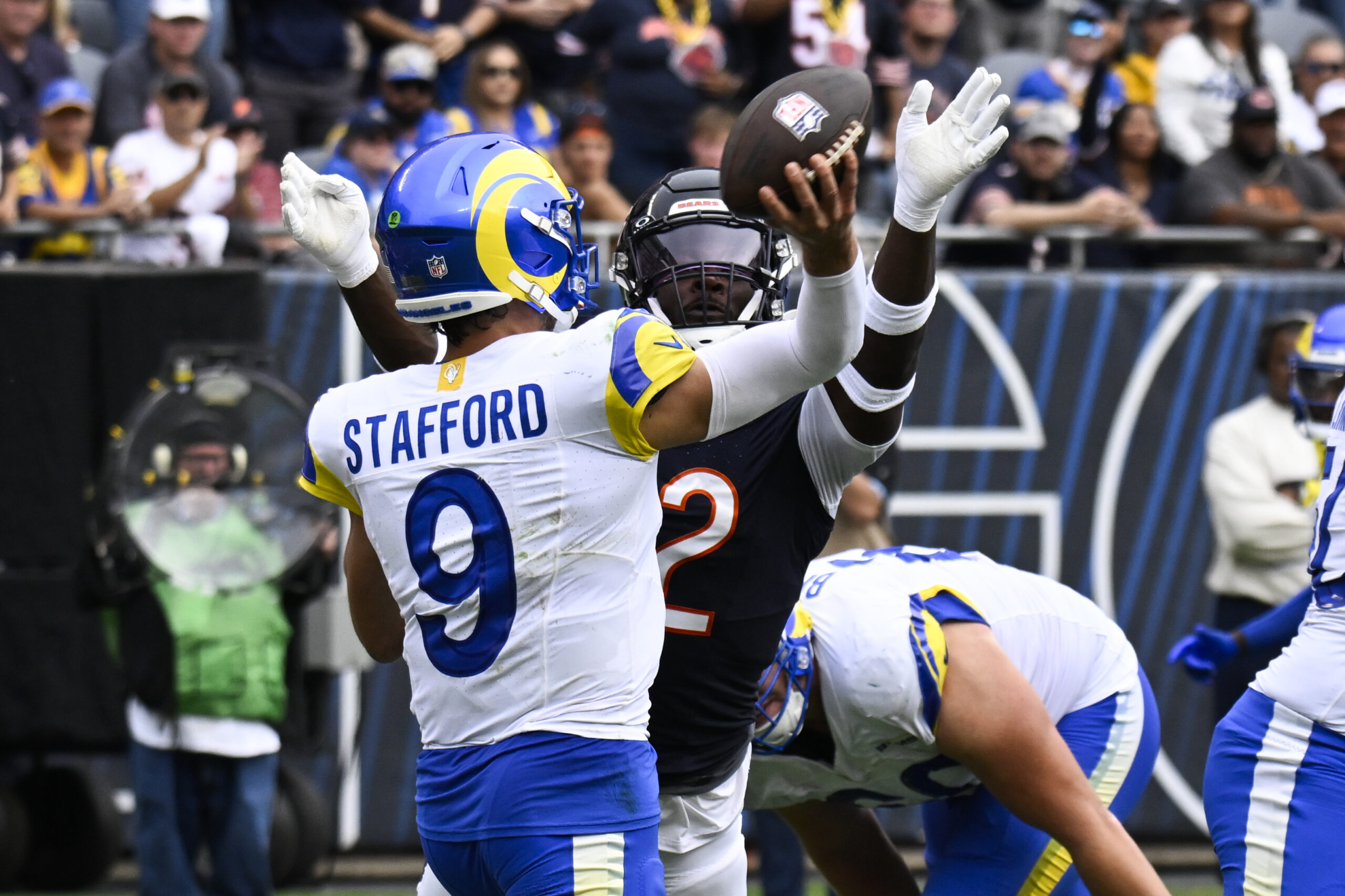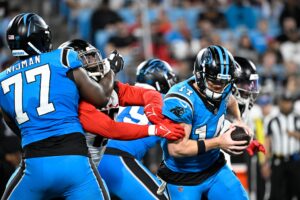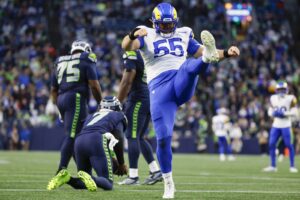In four trips to the red zone on Sunday, the Los Angeles Rams offense only mustered one touchdown. A combination of play calling and personnel may be responsible for LA’s lack of success inside the 20-yard line.
When the Rams traveled to play the Chicago Bears, they faced a top-10 defensive unit in the NFL. Despite finding some success early in drives, once head coach Sean McVay’s offense passed the 20-yard line they became impotent. This phenomenon is proving to be a trend this season, as Los Angeles ranks 27th in red zone touchdown percentage. The Rams have scored in just 41.18% of their red zone trips this season.
This is a far cry from last season. In 2023, the team ranked eighth in the statistic, scoring touchdowns in over 60% of red zone appearances.
McVay took accountability for the offensive struggles.
“I’ll always look at myself first and foremost,” McVay said. “Some of it was definitely where I’ve got to do a better job of it, and then there are times where we can execute collectively better in terms of just our overall techniques, fundamentals, and ability to fight through the down based on what the defense presents.”
Los Angeles Rams Offense Haunted by Red Zone Woes vs. Bears
The Offensive Line
Offensive line struggles and play calling defined the Rams’ Week 4 offense. During the Rams’ first offensive drive, the team reached the 30-yard line before quarterback Matthew Stafford was sacked for eight yards, stalling the offense and leading to kicker Joshua Karty’s first of four field goals. The offense also essentially surrendered the drive by running the ball twice after the eight-yard loss.
One of the more lackluster units for the Rams this season, the offensive line has allowed 13 sacks to Stafford, including three to the Bears. The offensive line has also been ineffective in the running game, leading to seven tackles for loss on Sunday. The most egregious play came in the middle of the second quarter. With just four linemen rushing, the Bears overpowered six Rams blockers to force a fumble.
An already decimated part of the Rams offense and missing five members due to injury, the front five of the Rams offense suffered against a talented Chicago defense. For all the draft heads and September scouts out there, start looking at eligible offensive linemen for April.
Matthew Stafford and Sean McVay
Matthew Stafford must also take some of the blame for the Rams’ lackluster performance in the red area. Through four weeks Stafford has a red zone completion percentage of 36.36, below the likes of Gardner Minshew and Bo Nix. His lack of mobility behind a damaged line exposes him to taking hits in the pocket. The former Detroit Lion doesn’t have the benefit of throwing to his top two wide receiver options, Puka Nacua and Cooper Kupp. While rookie Jordan Whittington and veteran option Tutu Atwell both performed admirably, the talent disparity is clear. This is especially true in red zone situations where one-on-one matchups and talent are key.
In the red zone, play verticality is condensed and it becomes easier to stack the box against the run game. McVay’s staple screen passes become ineffective in this scenario and the Rams cannot rely on talent to expose matchups. Particularly against talented secondaries, like Chicago’s, the Rams need to rely on the run game against stacked boxes, which the offensive line struggles with.
It’s a catch-22 for the Los Angeles Rams offense. Against the Green Bay Packers in Week 5 the team will face a similar problem up front. However, there is a chance to exploit a weakened Packers secondary which missed star cornerback Jaire Alexander and sophomore riser Carrington Valentine.
Main Photo: Matt Marton-Imagn Images






